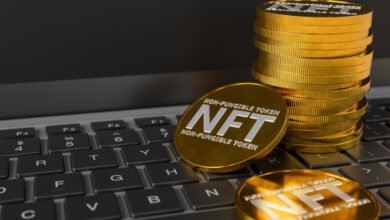What is Bitcoin?

what is bitcoin ?
what is bitcoin, Bitcoin is the first and most well-known cryptocurrency, often referred to as a digital or virtual currency. It operates through a decentralized network of computers, eliminating the need for a central authority like a bank or government.
It was created in 2009 by an anonymous person or group known as Satoshi Nakamoto.
There are many different ways to buy and sell Bitcoin, including through cryptocurrency exchanges and peer-to-peer platforms.
Who controls Bitcoin?
Bitcoin’s beauty lies in its decentralized nature, meaning no single entity or individual controls it. This stands in stark contrast to traditional currencies controlled by governments and regulated by financial institutions. Here’s a breakdown of how control and influence operate within the Bitcoin system:
No central authority: Unlike national currencies, there’s no central bank or government dictating Bitcoin’s rules or value. Decisions on the Bitcoin network are made through a consensus mechanism where miners and users collectively agree on changes.
Multiple stakeholders: Several key players contribute to the network’s operation:
- Miners: They provide the computing power to validate transactions and secure the network. They earn rewards in Bitcoin for their efforts.
- Developers: They maintain and improve the Bitcoin software, proposing upgrades and bug fixes. However, they can’t force changes onto the network; ultimately, users decide which updates to adopt.
- Users: They transact with Bitcoin, buying, selling, and holding it. Their collective behavior influences the market value and adoption.
- Consensus mechanism: Any proposed changes to the Bitcoin protocol must be agreed upon by a majority of miners and users. This ensures that no single entity can unilaterally dictate the direction of the network.
How to Buy Bitcoin?
To buy Bitcoin, you can follow these steps:
- Choose a Trading Platform:
Register on a reliable Bitcoin trading academy platform such as Coinbase, Binance, or Kraken. You may need to verify your identity for security and compliance purposes. - Create a Bitcoin Wallet:
Download and install a Bitcoin wallet through a digital wallet app or an online platform. Ensure that you choose a secure and reputable wallet that suits your needs. - Fund Your Account:
Deposit funds into your trading account using available payment methods in fiat currency (like USD or EUR). - Purchase Bitcoin:
Utilize the balance in your funded account to buy Bitcoin on the platform. The purchasing methods may vary depending on the platform’s interface. - Transfer Bitcoin to Your Wallet:
Once you have purchased Bitcoin, transfer it to your personal digital wallet to ensure its security. - Secure Your Wallet:
Consider activating additional security options such as two-factor authentication to protect your wallet.
How to store the Bitcoin you buy?
If you knew what is bitcoin and you bought it, then you need a place to store it.
Bitcoins can be stored in two types of digital wallets; hot wallets or cold wallets. With hot wallets, transactions are typically faster, while cold wallets often include additional security measures that help protect your assets but also ensure transactions take longer.
How Bitcoin works?
The operation of what is bitcoin is carried out through the Bitcoin network based on the blockchain system. Here is a detailed explanation of how Bitcoin works:
- Wallets: Users start by creating a Bitcoin wallet, which consists of a private key and a public address. The private key is used for digital signatures and accessing the funds.
- Transactions: Bitcoin is transferred from one wallet to another through Bitcoin transactions. Each transaction contains inputs and outputs.
- Digital Signature: The sender signs the transaction using their private key, which verifies the authenticity of the transaction.
- Verification: The digital signature is verified using the recipient’s associated public key.
- Block Aggregation: Several transactions are grouped together in a set called a block. Each block contains a header with information such as the hash of the previous block.
- Mining: Transactions are collected into blocks and entered into complex computational processes that miners solve to add the block to the blockchain.
- Adding to Blockchain: After the computational puzzles are solved, the block is permanently added to the blockchain, and the miner is rewarded with Bitcoin and transaction fees as an incentive.
- Updating Ledger: Your copy of the blockchain ledger is updated with the addition of the new block, and this is done synchronously across the entire network.
- Confirmations: A transaction is confirmed when it is added to multiple blocks in the blockchain. The more confirmations, the stronger the security.
- Supply Control: The supply of Bitcoin is automatically determined. A fixed amount of Bitcoin is added to miners as a reward, and this reward decreases over time.
This summarizes how Bitcoin operates through blockchain processes, verification, and digital signatures.
Benefits and challenges of Bitcoin
1.Benefits of Bitcoin:
- Decentralization: No single entity controls Bitcoin, offering resistance to manipulation and censorship. Transactions are verified and recorded on a public ledger, accessible to everyone.
- Security: Advanced cryptography secures transactions and prevents counterfeiting. The distributed nature of the network makes it highly resistant to cyberattacks.
- Transparency: All transactions are publicly viewable on the blockchain, promoting transparency and accountability.
- Global reach: Bitcoin can be transferred anywhere in the world, 24/7, without the need for traditional intermediaries like banks.
- Lower fees: Transactions can be significantly cheaper than international bank transfers or credit card payments.
- Potential for financial inclusion: Bitcoin can provide access to financial services for those who are unbanked or underbanked.
- Store of value: Bitcoin’s limited supply (21 million) potentially makes it a hedge against inflation, similar to gold.
2.Challenges of Bitcoin:
- Volatility: Bitcoin’s price has historically been highly volatile, making it a risky investment.
- Limited adoption: Although growing, Bitcoin is still not widely accepted as a payment method compared to traditional currencies.
- Technical complexity: Using and storing Bitcoin can be technically challenging for beginners.
- Environmental impact: Bitcoin mining consumes a significant amount of energy, raising concerns about its environmental footprint.
- Regulation: Governments are still developing regulations for cryptocurrencies, leading to uncertainty and potential restrictions.
- Illicit activities: Bitcoin can be used for illegal activities, raising concerns about money laundering and financial crime.
- Scalability: The Bitcoin network can currently handle only a limited number of transactions per second, potentially hindering its widespread adoption.
Overall, Bitcoin offers several potential benefits but also faces significant challenges. Weighing these factors carefully is crucial before deciding whether or not Bitcoin is right for you.
Is Bitcoin a cryptocurrency?
Yes, Bitcoin is a digital cryptocurrency. Cryptocurrency is a digital currency that relies on cryptographic techniques to secure and manage transactions. This is made possible through the use of blockchain technology. The objective behind the design of digital currencies is to achieve independence from centralized authorities such as central banks or governments, providing individuals with direct and secure transfer and trading academy capabilities.
Digital currencies rely on encryption techniques to secure transactions and protect digital assets. Complex mathematical systems are used to verify and record transactions in the blockchain ledger. Digital cryptocurrency wallets (crypto wallets) are used to store private keys, which enable individuals to access their balances and execute transactions securely.
Examples of digital currencies:
While the main focus of this article revolves around Bitcoin, it is important to highlight some of the most prominent digital currencies in the financial markets. Here are a few examples:
1.Bitcoin:
The first and most well-known cryptocurrency. It was launched in 2009 and represents the leading cryptocurrency in terms of market value and adoption.
2.Ethereum:
An open-source cryptocurrency platform that enables developers to build decentralized applications and execute smart contracts.
3.Ripple:
Aims to facilitate fast and low-cost financial transactions and asset exchanges between banks and financial institutions.
4.Litecoin:
Similar to Bitcoin in structure and design, but provides faster processing times and lower fees.
These are just a few examples of digital currencies, as there are many others available for trading in the financial markets. It is important to note that the value of digital currencies varies according to the market, project, and general usage.”
FQA
Is Bitcoin allowed to be traded in all countries?
Bitcoin trading is not allowed in all countries. In some countries, steps have been taken to restrict or ban Bitcoin exchanges and the use of the currency. For example, China has banned Bitcoin exchanges and the issuance of the currency within its borders. These measures are often taken to control the speculative interest in virtual currencies and limit their usage.
Can Bitcoin be used to purchase things?
Currently, Bitcoin and other cryptocurrencies are primarily traded as investment assets, similar to stocks, rather than as a widely accepted medium of exchange for goods and services. High transaction fees and the volatility of digital currencies hinder their widespread adoption as a currency.
Can Bitcoin be lost or stolen?
Stealing Bitcoin is highly challenging due to the security of the blockchain network, which records transactions. It is a highly secure network. However, there are still malicious software, viruses, and other tools that can facilitate hacking into websites and online accounts.
It is important to note that if a user forgets their private password, it can lead to a significant loss of encrypted currency. Additionally, users should be cautious and keep their passwords secure, avoiding sharing them with others or writing them down on paper. Others could access and discover them.
References:
https://ar.cointelegraph.com/learn/what-is-bitcoin
https://www.investopedia.com/terms/b/bitcoin.asp
https://www.coindesk.com/learn/what-is-bitcoin/
https://www.nerdwallet.com/article/investing/how-to-invest-in-bitcoin




